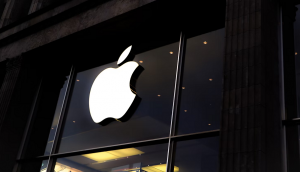Apple’s Control-Freak Attitude Rolls On
![]() What is it about Steve Jobs and Apple Computing? Last week Apple applied for a patent for technology to take over “jail broken” iPads and iPhones and reset them to factory defaults. This is apparently Apple’s reply to a federal judicial ruling that makes “jail breaking” devices legal. The message seems to be, “We can’t sue you, but we can force you back into line.”
What is it about Steve Jobs and Apple Computing? Last week Apple applied for a patent for technology to take over “jail broken” iPads and iPhones and reset them to factory defaults. This is apparently Apple’s reply to a federal judicial ruling that makes “jail breaking” devices legal. The message seems to be, “We can’t sue you, but we can force you back into line.”
Jail breaking, for those who are not familiar with the term, basically means removing restrictions on the apps, media, and other material that a smart phone can run. It is most commonly applied to iPhones mainly because Apple maintains such tight controls over what apps can be used on the device. Of course this requires technical skills beyond what most users have, and it creates problems with installing operating system upgrades. It also voids the warranty. So only a small number of the many iPhone users even consider jail breaking their systems.
That number would be much smaller if Apple wasn’t so incredibly controlling about what it allows on iPhones and iPads. The only source of apps and other third-party media that users can add is the Apple App store. By contrast, third-party stores abound for Palm, Window Mobile, Symbian, and Android applications. And to get into the App store, an application has to pass stringent inspections by Apple. The plus side of this for users is that they can be pretty sure that the apps will all run well and not interfere with each other or cause technical problems. And they can be fairly sure that they are not loading malware onto their iPhones.
![]() On the other hand, it hugely restricts what you can get. For instance, you cannot get any third-party calendar, tasks, and address book applications. And Apple’s built-in personal information management (PIM) apps are so basic they are practically non-functional. The reason is that Apple does not allow any apps to access its built-in databases, which third-party PIM apps would have to do, and it does not allow any apps that compete with its own offerings. In some cases apparently that includes unannounced Apple apps that the company may never actually bring to the market. The result in this case is that the iPhone and iPad are seriously deficient in PIM functionality that many business people need to manage their business and personal lives. And even apps that do get into the App Store don’t always stay. Several times Apple has rejected new versions of existing apps for no apparent reason.
On the other hand, it hugely restricts what you can get. For instance, you cannot get any third-party calendar, tasks, and address book applications. And Apple’s built-in personal information management (PIM) apps are so basic they are practically non-functional. The reason is that Apple does not allow any apps to access its built-in databases, which third-party PIM apps would have to do, and it does not allow any apps that compete with its own offerings. In some cases apparently that includes unannounced Apple apps that the company may never actually bring to the market. The result in this case is that the iPhone and iPad are seriously deficient in PIM functionality that many business people need to manage their business and personal lives. And even apps that do get into the App Store don’t always stay. Several times Apple has rejected new versions of existing apps for no apparent reason.
And this control attitude doesn’t stop with apps. Earlier this summer Steve Jobs made news when he announced a ban on adult material on the iPad. At least three times on different occasions he said things to the effect of, “You won’t find any adult material on the iPad.”
While this may be in part an attempt to reassure parents that their children won’t be exposed to anything the parents disapprove of (note that as usual in the United States, any amount of violence is considered acceptable), it raises a couple of questions. First, what exactly does he mean? The iPad comes with a version of Safari (note that per Apple’s ban on competitive products you won’t be able to get Firefox, Google Chrome or IE on the iPad), and even Apple is not going to be able to prevent users from accessing any Web site they want to on the Internet, including adult sites. So does he mean that “Playboy” won’t be allowed? Or will games that have female characters in bikinis be banned? What about “The Kinsey Report” or other nonfiction books and novels that deal with sexuality?
Personally I resent this. I am not a big consumer of adult material in that sense, but I am an adult, and I will determine what e-books and other material, and applications I keep on the devices I buy with my hard-earned money, thank you kindly Mr. Jobs. But the larger point here is that Apple’s super-controlling attitude can create problems for businesses. For one thing, a business that wants to offer an app to customers, certainly an important e-business strategy these days, will have to pass the Apple gauntlet before it can get its software into the App Store. For another, this attitude may keep some customers from getting an iPad in the first place – it certainly is a major reason I am not buying one. Without Pimlical, the advanced PIM that I have used for several years now, the iPad is simply not adequate to my needs.
We are now close to seeing the first real competitive slate systems running other operating systems – in particular Android – on the marketplace. Once they appear, and presuming they get adequate marketing support, Apple may find that this control-freak approach has its disadvantages. Things could be getting interesting in the mobile marketplace.
A message from John Furrier, co-founder of SiliconANGLE:
Your vote of support is important to us and it helps us keep the content FREE.
One click below supports our mission to provide free, deep, and relevant content.
Join our community on YouTube
Join the community that includes more than 15,000 #CubeAlumni experts, including Amazon.com CEO Andy Jassy, Dell Technologies founder and CEO Michael Dell, Intel CEO Pat Gelsinger, and many more luminaries and experts.
THANK YOU









